An
Osprey catches two Rainbow Trout at Rothiemurchus in Kincraig,
Scotland. Ospreys migrate each spring from Africa and nest in tall pine
trees around the Aviemore area.: photo by Jeff J Mitchell/FT, 7 June 2016
.
.
An
Osprey catches two Rainbow Trout at Rothiemurchus in Kincraig,
Scotland. Ospreys migrate each spring from Africa and nest in tall pine
trees around the Aviemore area.: photo by Jeff J Mitchell/FT, 7 June 2016

An
Osprey catches two Rainbow Trout at Rothiemurchus in Kincraig,
Scotland. Ospreys migrate each spring from Africa and nest in tall pine
trees around the Aviemore area. The raptor was hunted to the point of
extinction in the Victorian era, but their migratory habits eventually
brought them back to Scotland with the first successful breeding pair
being recorded in 1954.: photo by Jeff J Mitchell via The National, 7 June 2016
Raymond Williams: Nature, from Keywords
Nature is perhaps the most complex word in the language. It is
relatively easy to distinguish three areas of meaning: (i) the essential
quantity and character of something; (ii) the inherent force which
directs either the world or human beings or both; (iii) the material
world itself, taken as including or not including human beings. Yet it
is evident that within (ii) and (iii), though the area of reference is
broadly clear, precise meanings are variable and at times even opposed.
The historical development of the word through these three senses is
important, but it is also significant that all three senses, and the
main variations and alternatives within the two most difficult of them,
are still active and widespread in contemporary usage.

Azize, a Western Lowland Gorilla who
turned 1 year old in May, eats hay inside the Tropical Rain Forest
Exhibit at the Franklin Park Zoo in Boston: photo by Matthew J. Lee/Boston Globe, 2 June 2016
Nature comes from fw nature, oF and natura, L, from a root in the past participle of nasci, L - to be born (from which also derive nation, native, innate, etc.). Its earliest sense, as in oF and L, was (i), the essential character and quality of something. Nature is thus one of several important words, including culture, which began as descriptions of a quality or process, immediately defined by a specific reference, but later became independent nouns. The relevant L phrase for the developed meanings is natura rerum -- the nature of things, which already in some L uses was shortened to natura -- the constitution of the world. In English sense (i) is from C13, sense (ii) from C14, sense (iii) from C17, though there was an essential continuity and in senses (ii) and (iii) considerable overlap from C16. It is usually not difficult to distinguish (i) from (ii) and (iii); indeed it is often habitual and in effect not noticed in reading.
In a state of rude nature there is no such thing as a people . . . The idea of a people ... is wholly artificial; and made, like all other legal fictions, by common agreement. What the particular nature of that agreement was, is collected from the form into which the particular society has been cast.Here, in Burke, there is a problem about the first use of nature, but no problem -- indeed it hardly seems the same word -- about the second (sense (i)) use. Nevertheless, the connection and distinction between senses (i), (ii) and (iii) have sometimes to be made very conscious. The common phrase human nature for example, which is often crucial in important kinds of argument, can contain, without clearly demonstrating it, any of the three main senses and indeed the main variations and alternatives. There is a relatively neutral use in sense (i): that it is an essential quality and characteristic of human beings to do something (though the something that is specified may of course be controversial). But in many uses the descriptive (and hence verifiable or falsifiable) character of sense (i) is less prominent than the very different kind of statement which depends on sense (ii), the directing inherent force, or one of the variants of sense (iii), a fixed property of the material world, in this case ‘natural man’.
A specimen of the newly-discovered Australian Peacock spider, Maratus Bubo, shows off its colourful abdomen: photo by Jurgen Otto/Reuters, 6 June 2016
A specimen of the newly-discovered Australian Peacock spider, Maratus Bubo, shows off its colourful abdomen: photo by Jurgen Otto/Reuters, 6 June 2016
What has also to be noticed in the relation between sense (i) and senses (ii) and (iii) is, more generally, that sense (i), by definition, is a specific singular -- the nature of something, whereas senses (ii) and (iii), in almost all their uses, are abstract singulars -- the nature of all things having become singular nature or Nature. The abstract singular is of course now conventional, but it has a precise history. Sense (ii) developed from sense (i), and became abstract, because what was being sought was a single universal ‘essential quality or character’. This is structurally and historically cognate with the emergence of God from a god or the gods. Abstract Nature, the essential inherent force, was thus formed by the assumption of a single prime cause, even when it was counterposed, in controversy, to the more explicitly abstract singular cause or force God. This has its effect as far as sense (iii), when reference to the whole material world, and therefore to a multiplicity of things and creatures, can carry an assumption of something common to all of them: either (a) the bare fact of their existence, which is neutral, or, at least as commonly, (b) the generalization of a common quality which is drawn upon for statements of the type, usually explicitly sense (iii), ‘Nature shows us that . . .’ This reduction of a multiplicity to a singularity, by the structure and history of the critical word, is then, curiously, compatible either with the assertion of a common quality, which the singular sense suits, or with the general or specific demonstration of differences, including the implicit or explicit denial of a common effective quality, which the singular form yet often manages to contain.

Giant Panda Hao Hao holds her cub in her mouth at the Paira Daiza zoo in Belgium: photo by Pairs Daiza / AFP, 2 June 2016
Any full history of the uses of nature would be a history of a large part of human thought. (For an important outline, see Lovejoy.) But it is possible to indicate some of the critical uses and changes. There is, first, the very early and surprisingly persistent personification of singular Nature: Nature the goddess, ‘nature herself'. This singular personification is critically different from what are now called ‘nature gods’ or ‘nature spirits’: mythical personifications of particular natural forces. ‘Nature herself' is at one extreme a literal goddess, a universal directing power, and at another extreme (very difficult to distinguish from some non-religious singular uses) an amorphous but still all-powerful creative and shaping force. The associated ‘Mother Nature’ is at this end of the religious and mythical spectrum. There is then great complexity when this kind of singular religious or mythical abstraction has to coexist, as it were, with another singular all-powerful force, namely a monotheistic God. It was orthodox in medieval European belief to use both singular absolutes but to define God as primary and Nature as his minister or deputy. But there was a recurrent tendency to see Nature in another way, as an absolute monarch. It is obviously difficult to separate this from the goddess or the minister, but the concept was especially used to express a sense of fatalism rather than of providence. The emphasis was on the power of natural forces, and on the apparently arbitrary or capricious occasional exercise of these powers, with inevitable, often destructive effects on men.
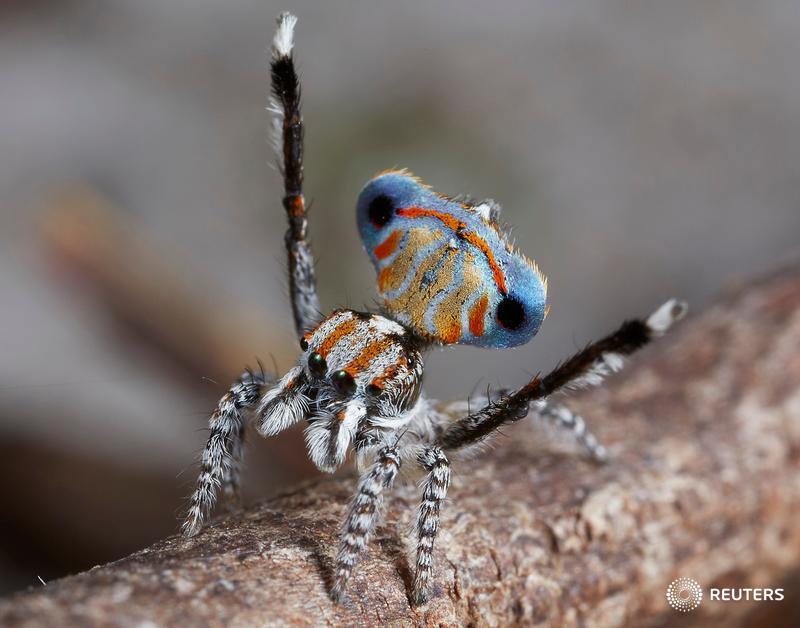
Video | Courtship dance of the Australian Peacock Spider: image via Reuters India @Reuters India, 7 June 2016
As might be expected, in matters of such fundamental difficulty, the concept of nature was usually in practice much wider and more various than any of the specific definitions. There was then a practice of shifting use, as in Shakespeare’s Lear:
Allow not nature more than nature needs,
Man’s life’s as cheap as beast’s ...
. . . one daughter
Who redeems nature from the general curse
Which twain have brought her to.
That nature, which contemns its origin.
Cannot be border’d certain in itself . . .
. . . All shaking thunder
Crack nature’s moulds, all germens spill at once,
That make ungrateful man . . .
. . . Hear, nature hear; dear goddess, hear . . .
In these examples there is a range of meanings: from nature as the primitive condition before human society; through the sense of an original innocence from which there has been a fall and a curse, requiring redemption; through the special sense of a quality of birth, as in the rootword; through again a sense of the forms and moulds of nature which can yet, paradoxically, be destroyed by the natural force of thunder; to that simple and persistent form of the goddess, Nature herself. This complexity of meaning is possible in a dramatic rather than an expository mode. What can be seen as an uncertainly was also a tension: nature was at once innocent, unprovided, sure, unsure, fruitful, destructive, a pure force and tainted and cursed. The real complexity of natural processes has been rendered by a complexity within the singular term.
Former manager of Chelsea and current manager of Manchester United
Jose Mourinho, centre, tries to get in the back of a car after attending
an employment tribunal for former Chelsea team doctor Eva Carneiro at
the Croydon Employment Tribunal in Croydon, south London: photo by Matt Dunham/AP, 7 May 2016
Former manager of Chelsea and current manager of Manchester United
Jose Mourinho, centre, tries to get in the back of a car after attending
an employment tribunal for former Chelsea team doctor Eva Carneiro at
the Croydon Employment Tribunal in Croydon, south London: photo by Matt Dunham/AP, 7 May 2016
There was then, especially from eC17, a critical argument about the observation and understanding of nature. It could seem wrong to inquire into the workings of an absolute monarch, or of a minister of God. But a formula was arrived at: to understand the creation was to praise the creator, seeing absolute power through contingent works. In practice the formula became lip-service and was then forgotten. Paralleling political changes, nature was altered from an absolute to a constitutional monarch, with a new kind of emphasis on natural laws. Nature, in C18 and C19, was often in effect personified as a constitutional lawyer. The laws came from somewhere, and this was variously but often indifferently defined; most practical attention was given to interpreting and classifying the laws, making predictions from precedents, discovering or reviving forgotten statutes, and above all shaping new laws from new cases: nature not as an inherent and shaping force but as an accumulation and classification of cases.
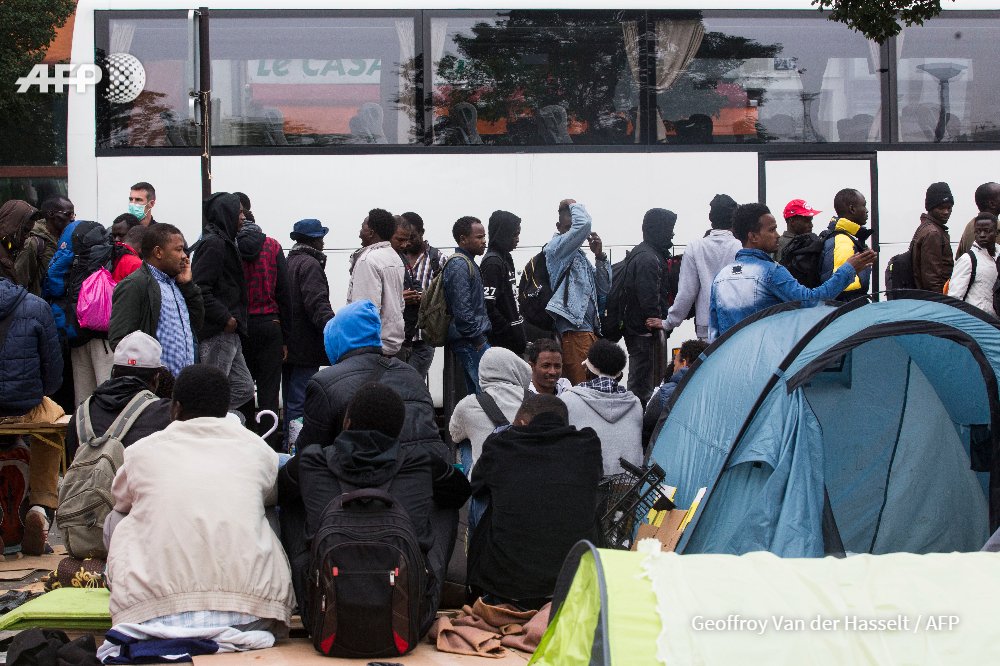
#France Evacuation of the #migrants camp at Jardin d'Eole, in Paris #AFP Photo by Geoffroy Van der Hasselt: image via Aurelia BAILLY @Aurelia BAILLY, 6 June 2016
This was the decisive emergence of sense (iii): nature as the material world. But the emphasis on discoverable laws --
Nature and Nature’s laws lay hid in night;
God said, Let Newton be! and all was light! (Pope)
-- led to a common identification of Nature with Reason: the object of observation with the mode of observation. This provided a basis for a significant variation, in which Nature was contrasted with what had been made of man, or what man had made of himself. A ‘state of nature’ could be contrasted -- sometimes pessimistically but more often optimistically and even programmatically -- with an existing state of society. The ‘state of nature’, and the newly personified idea of Nature, then played critical roles in arguments about, first, an obsolete or corrupt society, needing redemption and renewal, and, second, an ‘artificial’ or ‘mechanical’ society, which learning from Nature must cure. Broadly, these two phases were the Enlightenment and the Romantic movement. The senses can readily be distinguished, but there was often a good deal of overlapping. The emphasis on law gave a philosophical basis for conceiving an ideal society. The emphasis on an inherent original power -- a new version of the much older idea -- gave a basis for actual regeneration, or, where regeneration seemed impossible or was too long delayed, an alternative source for belief in the goodness of life and of humanity, as counterweight or as solace against a harsh ‘world’.
Syrian President Bashar al-Assad waves before addressing the new parliament in Damascus: photo by AFP, 7 June 2016
Syrian President Bashar al-Assad waves before addressing the new parliament in Damascus: photo by AFP, 7 June 2016
Each of these conceptions of Nature was significantly static: a set of laws -- the constitution of the world, or an inherent, universal, primary but also recurrent force -- evident in the ‘beauties of nature’ and in the ‘hearts of men’, teaching a singular goodness. Each of these concepts, but especially the latter, has retained currency. Indeed one of the most powerful uses of nature, since lC18, has been in this selective sense of goodness and innocence. Nature has meant the ‘countryside’, the ‘unspoiled places’, plants and creatures other than man. The use is especially current in contrasts between town and country: nature is what man has not made, though if he made it long enough ago -- a hedgerow or a desert -- it will usually be included as natural. Nature-lover and nature poetry date from this phase.
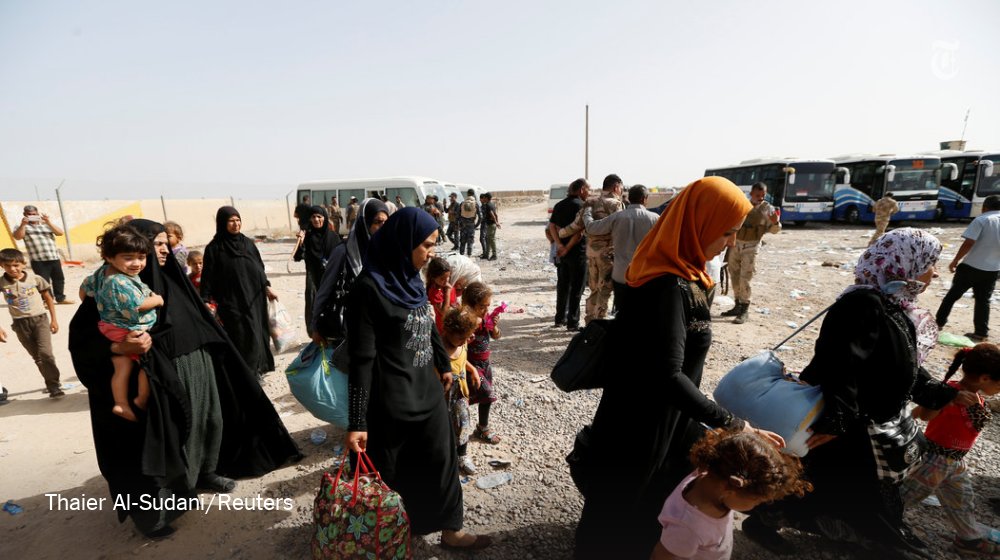
In every tent of refugees from Falluja, there is a sad story, but some are truly wrenching Photo by Thaier Al-Sudani/Reuters: image via the New York Times @nytimes, 6 June 2016
But there was one further powerful personification yet to come: nature as the goddess, the minister, the monarch, the lawyer or the source of original innocence was joined by nature the selective breeder: natural selection, and the ‘ruthless’ competition apparently inherent in it, were made the basis for seeing nature as both historical and active. Nature still indeed had laws, but they were the laws of survival and extinction: species rose and flourished, decayed and died. The extraordinary accumulation of knowledge about actual evolutionary processes, and about the highly variable relations between organisms and their environments including other organisms, was again, astonishingly, generalized to a singular name. Nature was doing this and this to species. There was then an expansion of variable forms of the newly scientific generalization: ‘Nature teaches . . .’, ‘Nature shows us that . . .’ In the actual record what was taught or shown ranged from inherent and inevitable bitter competition to inherent mutuality or co-operation. Numerous natural examples could be selected to support any of these versions: aggression, property, parasitism, symbiosis, co-operation have all been demonstrated, justified and projected into social ideas by selective statements of this form, normally cast as dependent on a singular Nature even while the facts of variation and variability were being collected and used.
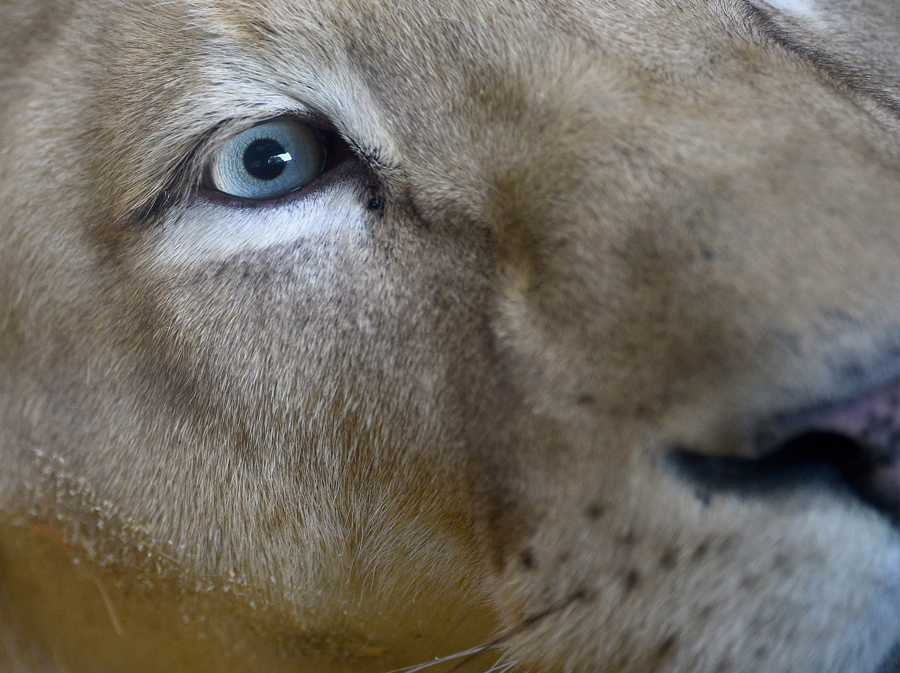
The eye of a white lioness at the zoological park of Amneville, France: photo by Jean-Christophe Verhaegen / AFP, 2 June 2016
The complexity of the word is hardly surprising, given the fundamental importance of the processes to which it refers. But since nature is a word which carries, over a very long period, many of the major variations of human thought -- often, in any particular use, only implicitly yet with powerful effect on the character of the argument -- it is necessary to be especially aware of its difficulty.
Raymond Williams (1921-1988): Nature, from Keywords, revised edition, 1983
Rescued migrants are seen on the Spanish frigate Reina Sofia (Queen
Sofia) at sea near Italian coasts, during the Operation Sophia: photo by EPA, 7 June 2016
Rescued migrants are seen on the Spanish frigate Reina Sofia (Queen
Sofia) at sea near Italian coasts, during the Operation Sophia: photo by EPA, 7 June 2016
 .
.US Secretary of State John Kerry reacts after shooting a bow and arrow as he participates in a Naadam ceremony, a competition which traditionally includes horse racing, Mongolian wrestling and archery, in Ulan Bator, Mongolia: photo by Byambasuren Byamba-Ochir/AFP, 6 June 2016

A Mongolian archer shoots a bow and arrow as US Secretary of State John Kerry attends a Naadam ceremony, a competition which traditionally includes horse racing, Mongolian wrestling and archery, in Ulan Bator, Mongolia: photo by.Saul Loeb / Reuters, 6 June 2016
A man has his shoes shined while he reads the front page of a newspaper with a headline that reads in Spanish; “PPK to the Palace”, referring to presidential candidate Pedro Pablo Kuczynski, in Lima, Peru. Early exit polls show Kuczynski with a slight lead over his rival Keiko Fujimori in Peru’s runoff presidential election.: photo by Rodrigo Abd/AP, 6 June 2016

A man has his shoes shined while he reads the front page of a newspaper with a headline that reads in Spanish; “PPK to the Palace”, referring to presidential candidate Pedro Pablo Kuczynski, in Lima, Peru. Early exit polls show Kuczynski with a slight lead over his rival Keiko Fujimori in Peru’s runoff presidential election.: photo by Rodrigo Abd/AP, 6 June 2016
This aerial picture shows the scene of a collision between a freight
train and a passengers train on their way between Liege and Namur, in
Saint-Georges-sur-Meuse, Eastern Belgium. Investigators worked through
the wreckage of a high speed train crash in eastern Belgium on Monday
that killed at least three people and injured nine others.: photo by Laurie Dieffembacq/AFP, 6 June 2016
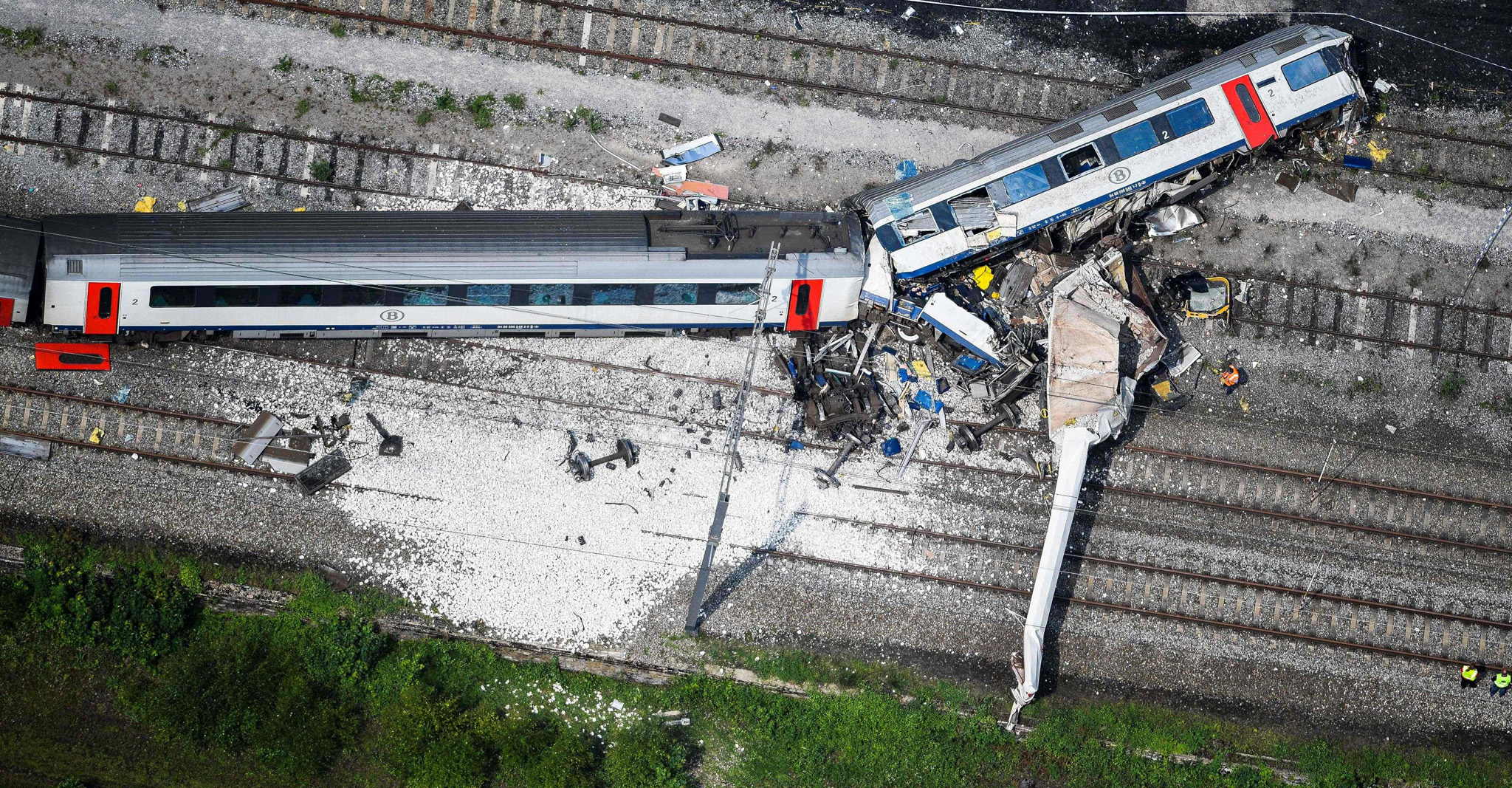
This aerial picture shows the scene of a collision between a freight train and a passengers train on their way between Liege and Namur, in Saint-Georges-sur-Meuse, Eastern Belgium. Investigators worked through the wreckage of a high speed train crash in eastern Belgium on Monday that killed at least three people and injured nine others.: photo by Laurie Dieffembacq/AFP, 6 June 2016

This aerial picture shows the scene of a collision between a freight train and a passengers train on their way between Liege and Namur, in Saint-Georges-sur-Meuse, Eastern Belgium. Investigators worked through the wreckage of a high speed train crash in eastern Belgium on Monday that killed at least three people and injured nine others.: photo by Laurie Dieffembacq/AFP, 6 June 2016
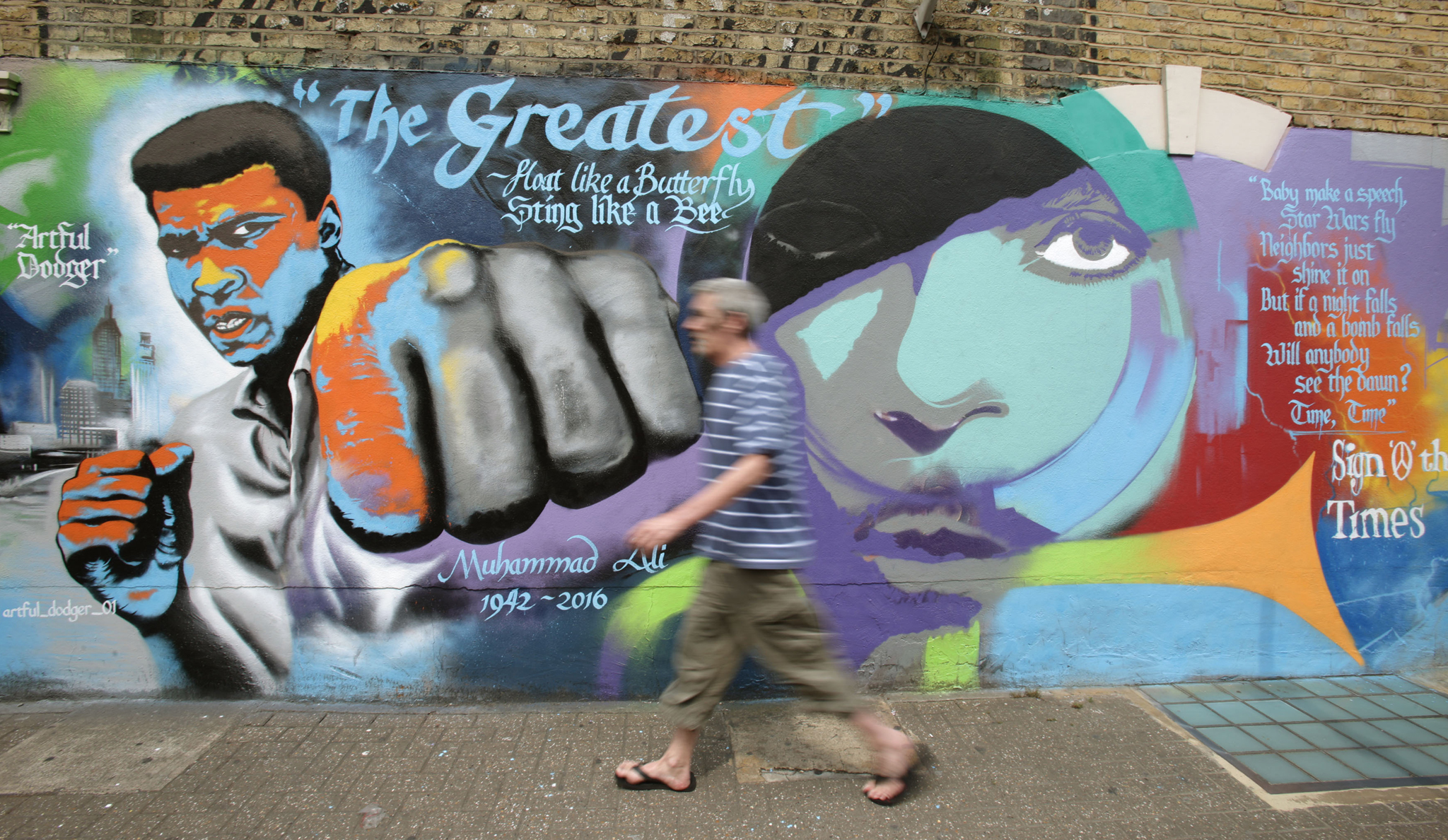
A graffiti mural of boxer Muhammad Ali and singer Prince -- who would have been 58 today -- in Camberwell, south London: photo by Yui Mok/PA, 7 June 2016

A graffiti mural of boxer Muhammad Ali and singer Prince -- who would have been 58 today -- in Camberwell, south London: photo by Yui Mok/PA, 7 June 2016

Ali praying around the table of his bungalow, Miami, 1966: photo by Gordon Parks, courtesy of The Gordon Parks Foundation

Ali praying around the table of his bungalow, Miami, 1966: photo by Gordon Parks, courtesy of The Gordon Parks Foundation

Ali greets fans before one of his fights against Henry Cooper, London, 1966: photo by Gordon Parks, courtesy of The Gordon Parks Foundation

Ali greets fans before one of his fights against Henry Cooper, London, 1966: photo by Gordon Parks, courtesy of The Gordon Parks Foundation

Ali greets fans before one of his fights against Henry Cooper, London, 1966: photo by Gordon Parks, courtesy of The Gordon Parks Foundation

Ali talking with a group of workers, Miami, 1966.: photo by Gordon Parks, courtesy of The Gordon Parks Foundation

Ali talking with a group of workers, Miami, 1966.: photo by Gordon Parks, courtesy of The Gordon Parks Foundation


Ali talking with a group of workers, Miami, 1966.: photo by Gordon Parks, courtesy of The Gordon Parks Foundation

Ali praying, London, 1966: photo by Gordon Parks, courtesy of The Gordon Parks Foundation
Mike Ashley, owner of Sports Direct, leaves Portcullis House after giving evidence to a parliamentary select committee: photo by Yui Mok/PA, 7 June 2016
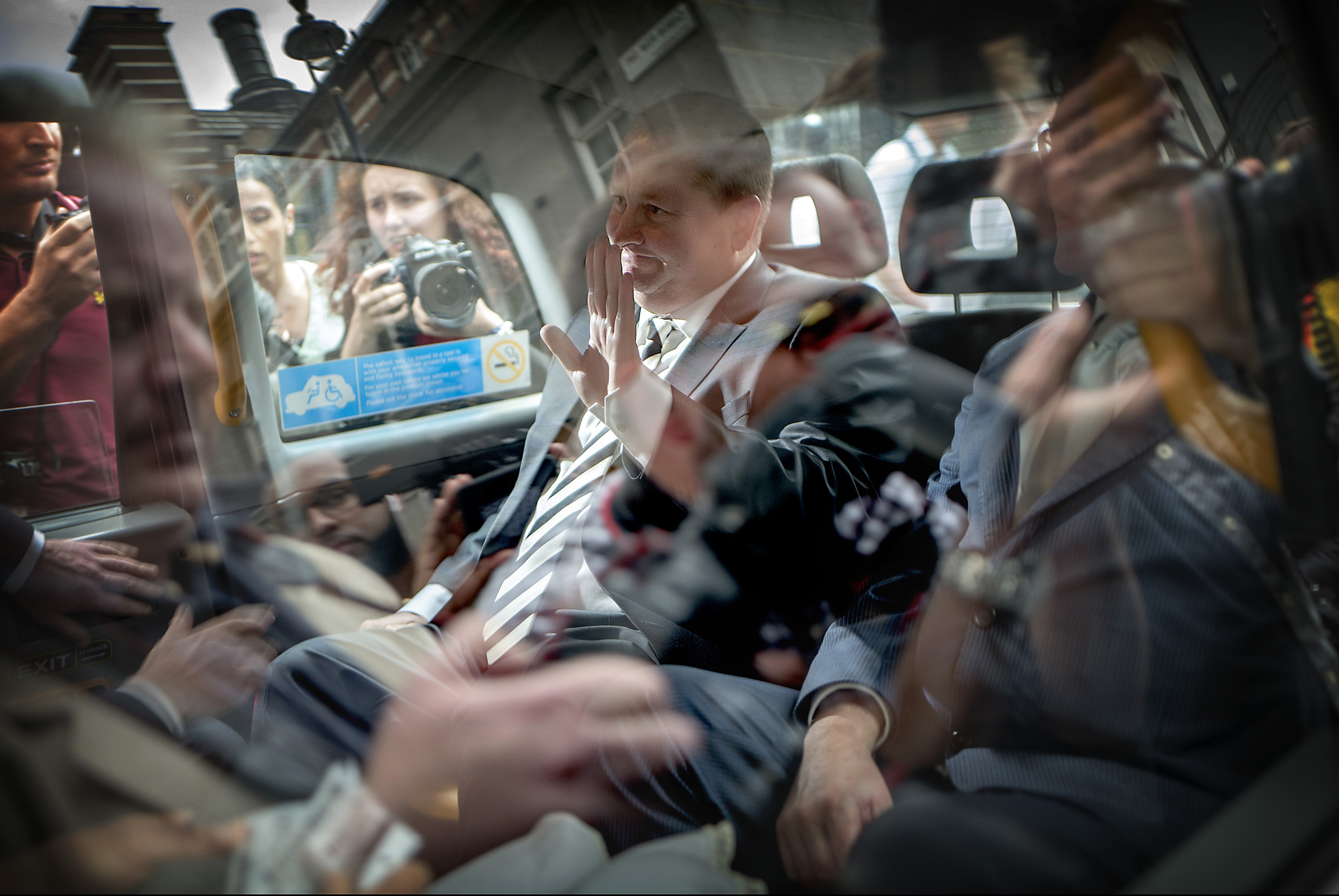
Mike Ashley, owner of Sports Direct, leaves Portcullis House after giving evidence to a parliamentary select committee: photo by Yui Mok/PA, 7 June 2016
UKIP leader Nigel Farage waves to a supporter as he leaves after unveiling a new campaign poster ahead of a televised debate with the Prime Minister: photo by Carl Court via FT, 7 June 2016
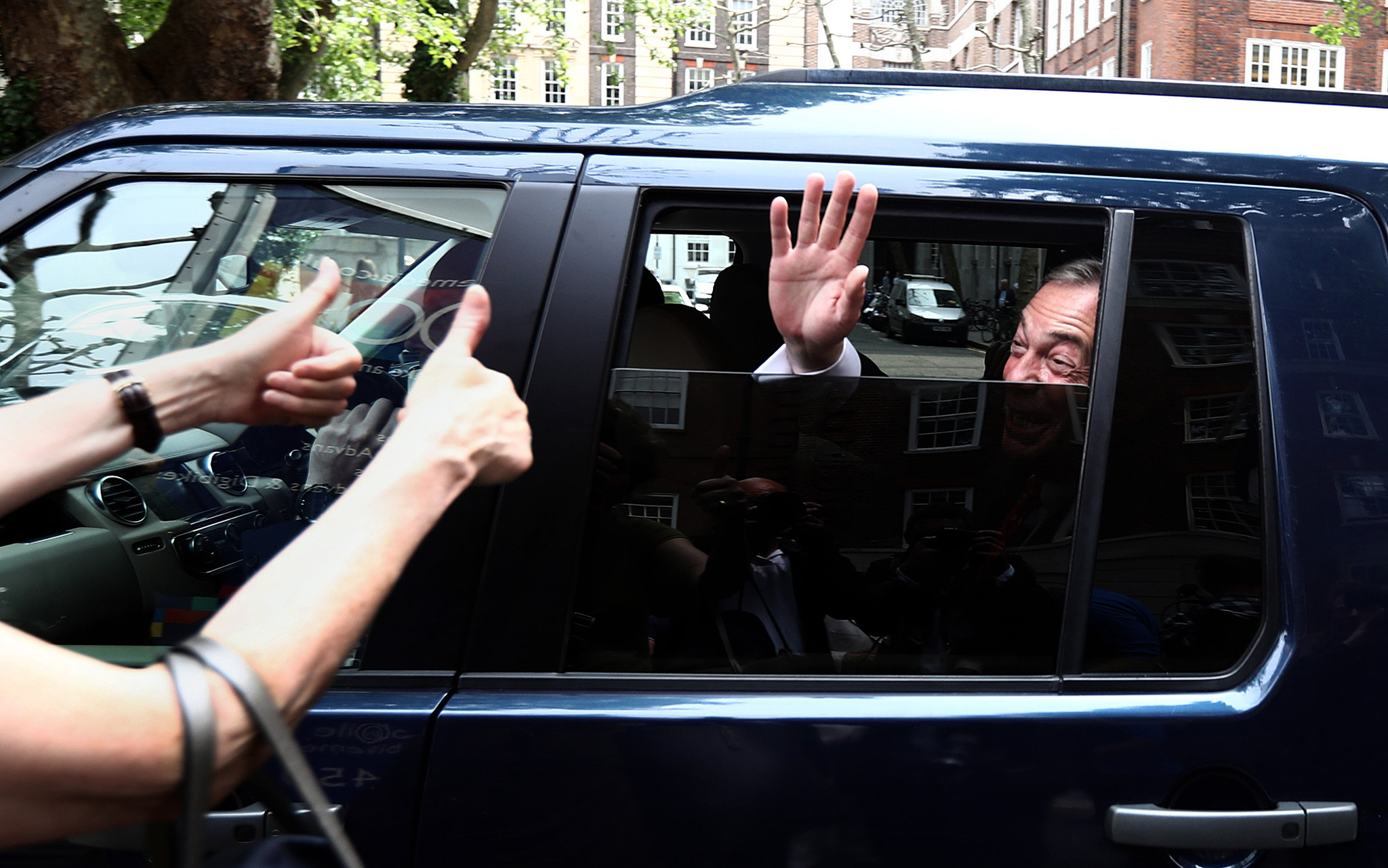
UKIP leader Nigel Farage waves to a supporter as he leaves after unveiling a new campaign poster ahead of a televised debate with the Prime Minister: photo by Carl Court via FT, 7 June 2016
A boy hangs strands of vermicelli, a specialty eaten during the Muslim holy fasting month of Ramadan, to dry at a factory in Allahabad, India: photo by Jitendra Prakash/Reuters, 7 June 2016
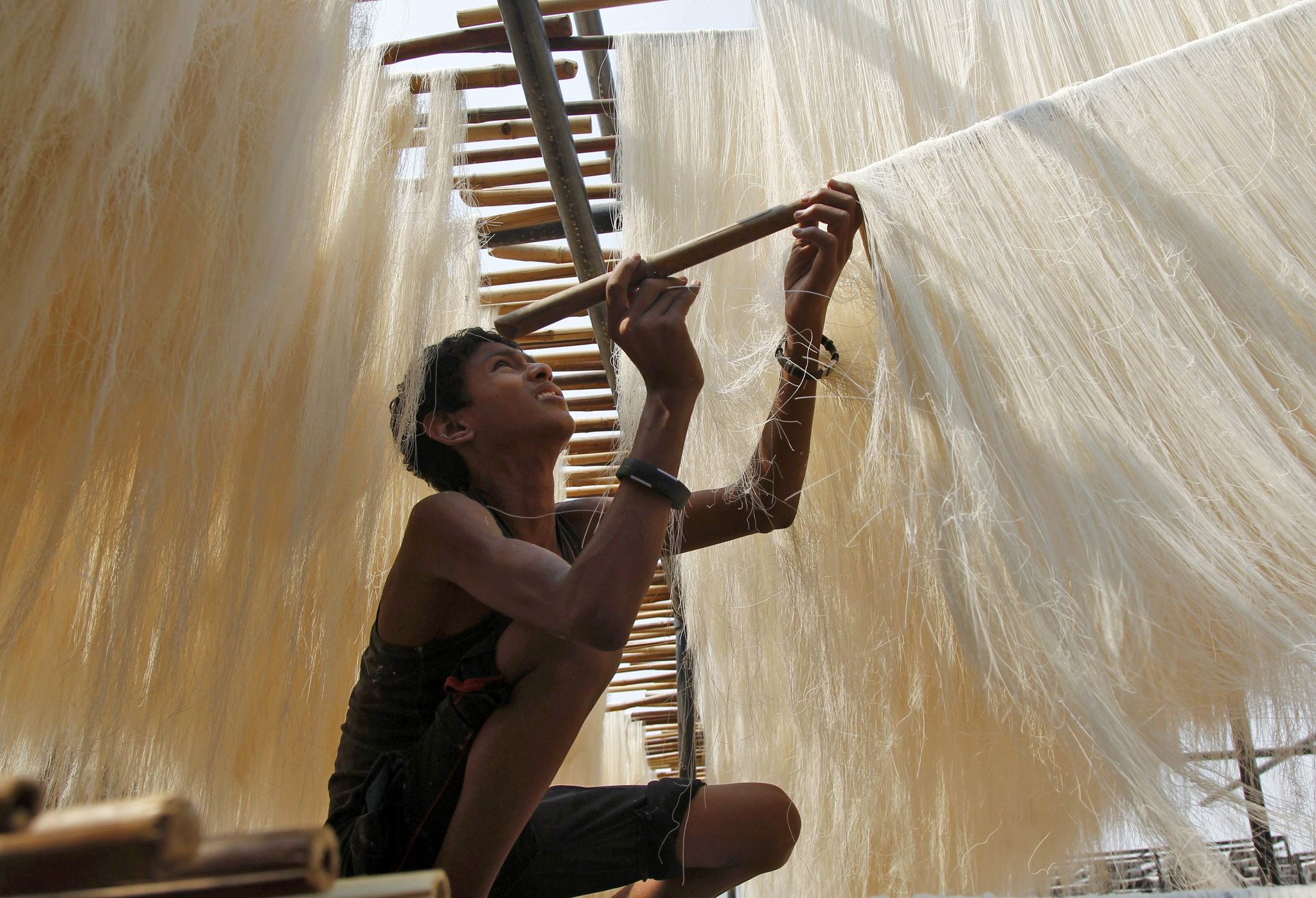
A boy hangs strands of vermicelli, a specialty eaten during the Muslim holy fasting month of Ramadan, to dry at a factory in Allahabad, India: photo by Jitendra Prakash/Reuters, 7 June 2016

Students sit in circles during a Quran recital class on the first day of Ramadan at Ar-Raudlatul Hasanah Islamic boarding school in Medan, North Sumatra, Indonesia. photo by Binsar Bakkara / AP, 7 June 2016

An Afghan labourer carries sweets at a factory ahead of the holy month of Ramadan in Jalalabad. Islam’s holy month of Ramadan, which is calculated on the sighting of the new moon, could begin on June 7 in Afghanistan: photo by. Noorullah Shirzada / AFP, 5 June 2016
An elderly man uses a fan to shade himself from the sun as he walks in a public park in Beijing: photo by Mark Schiefelbein/AP, 7 June 2016
An elderly man uses a fan to shade himself from the sun as he walks in a public park in Beijing: photo by Mark Schiefelbein/AP, 7 June 2016
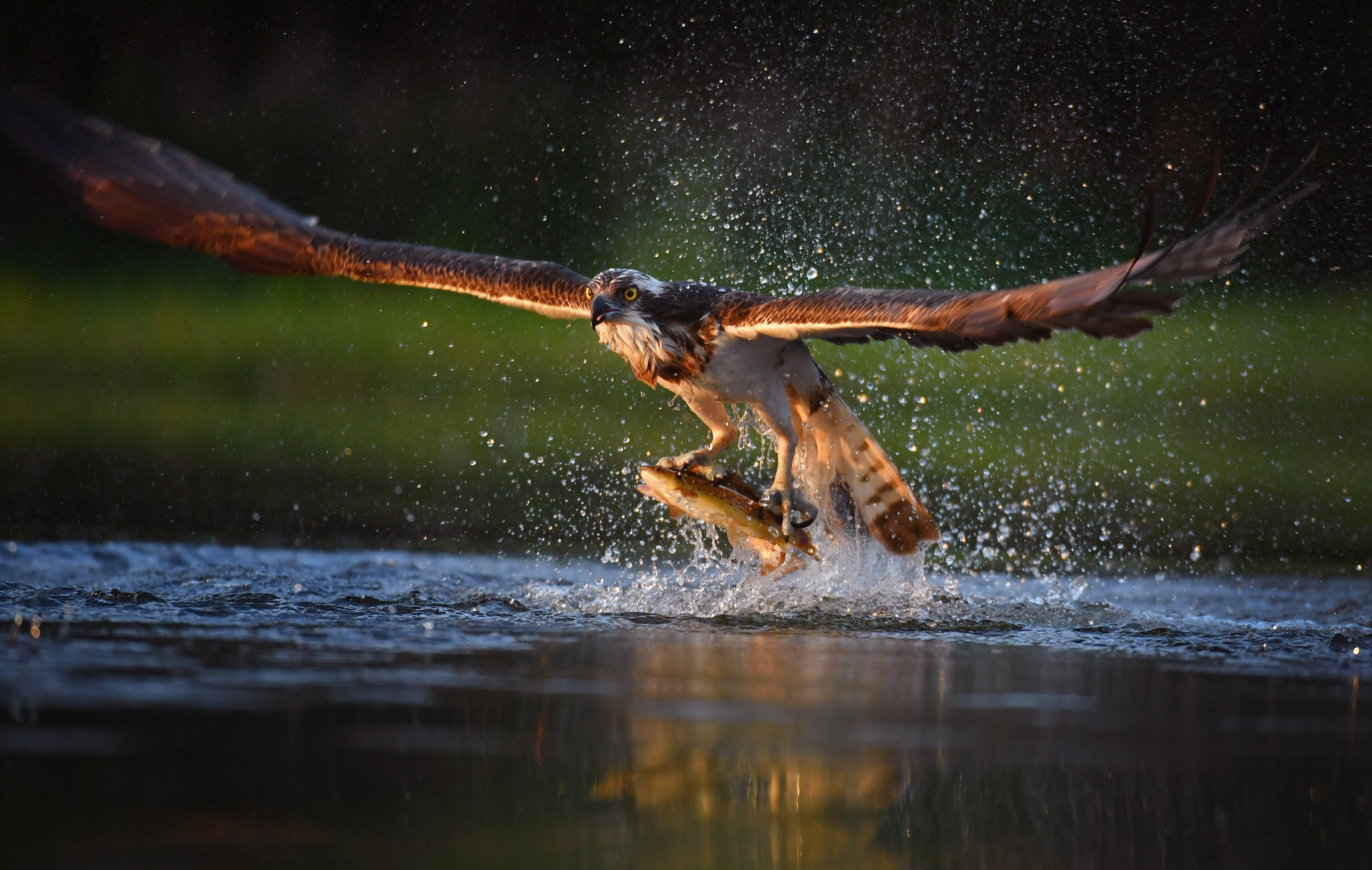
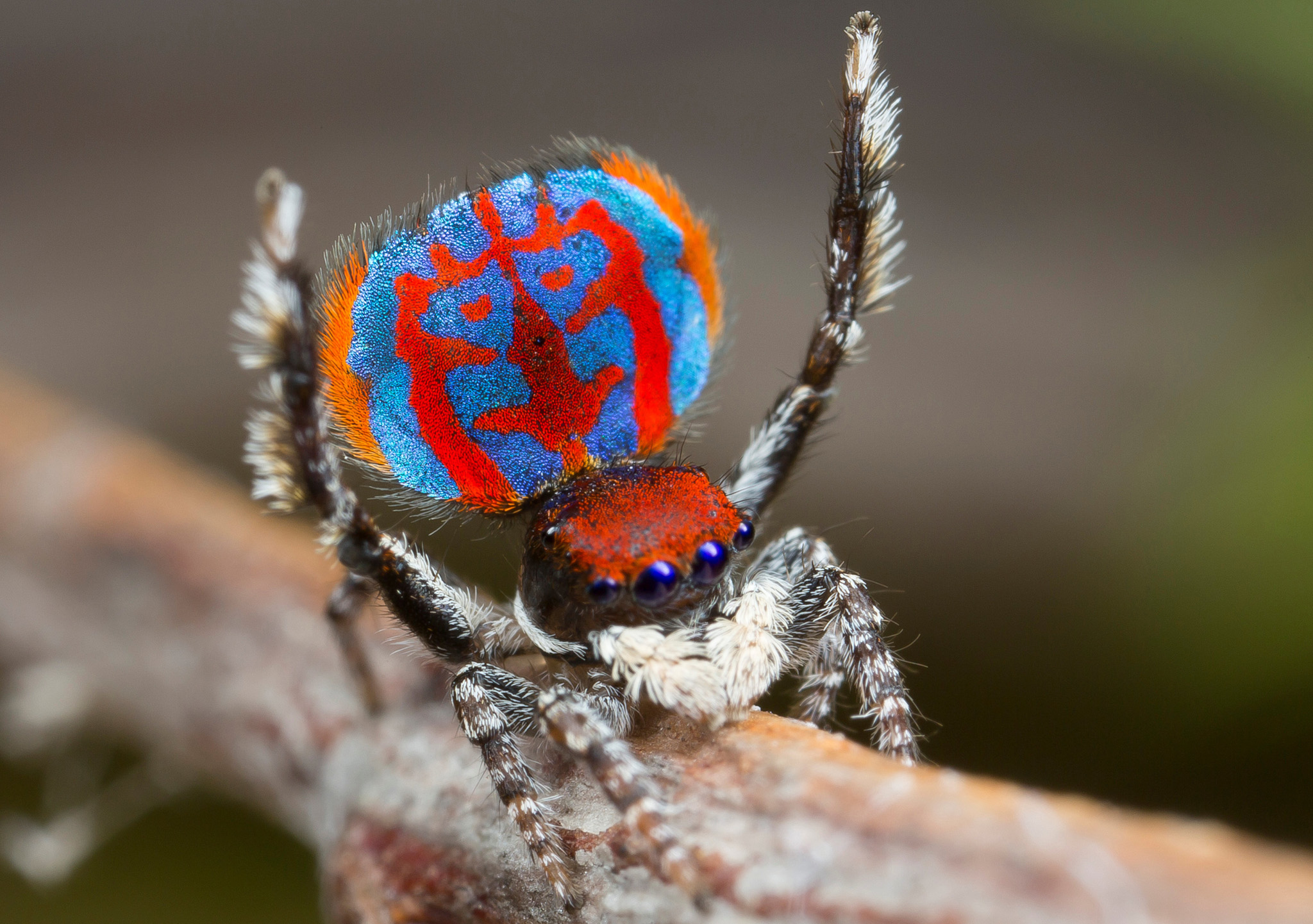

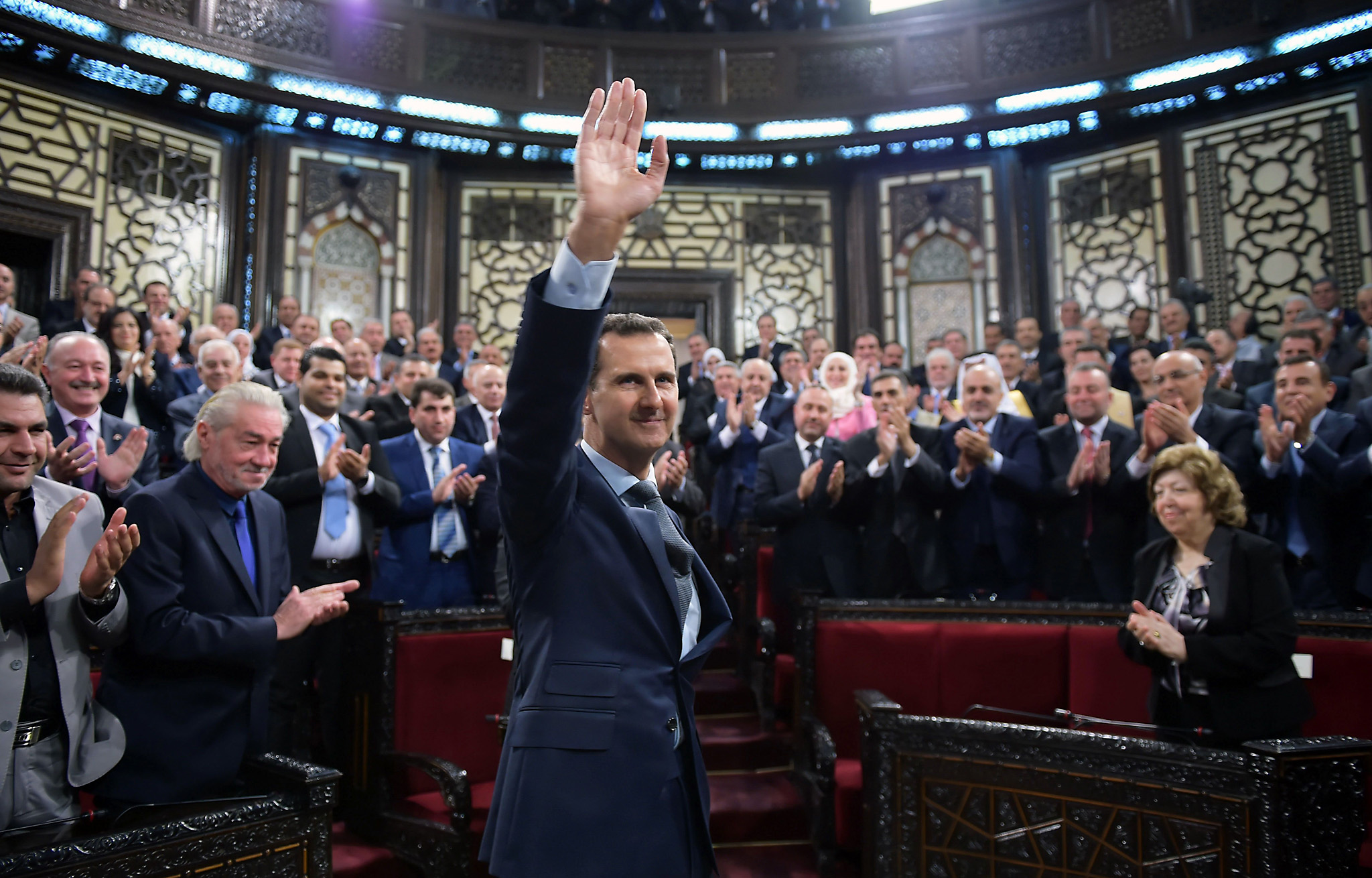
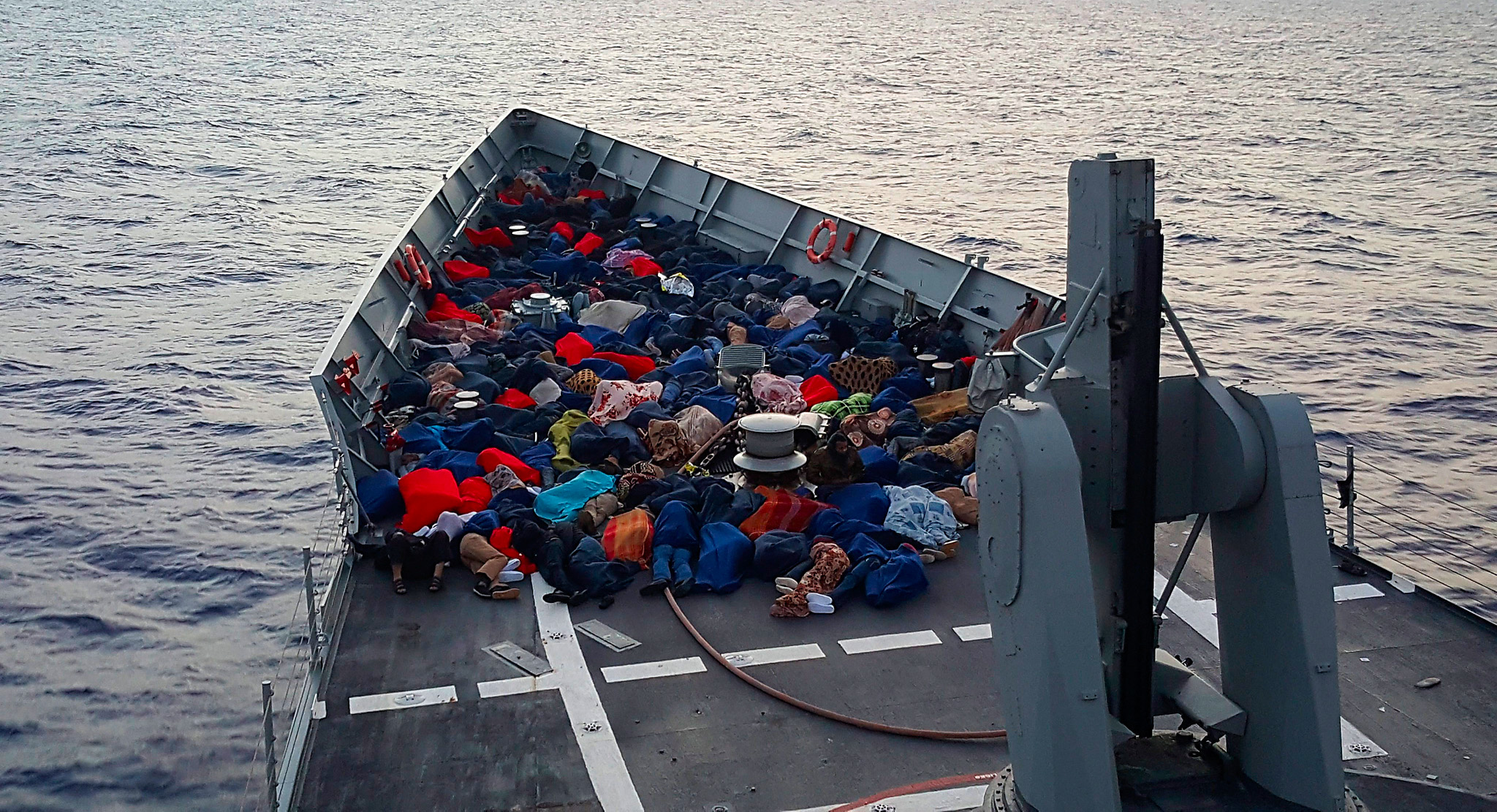
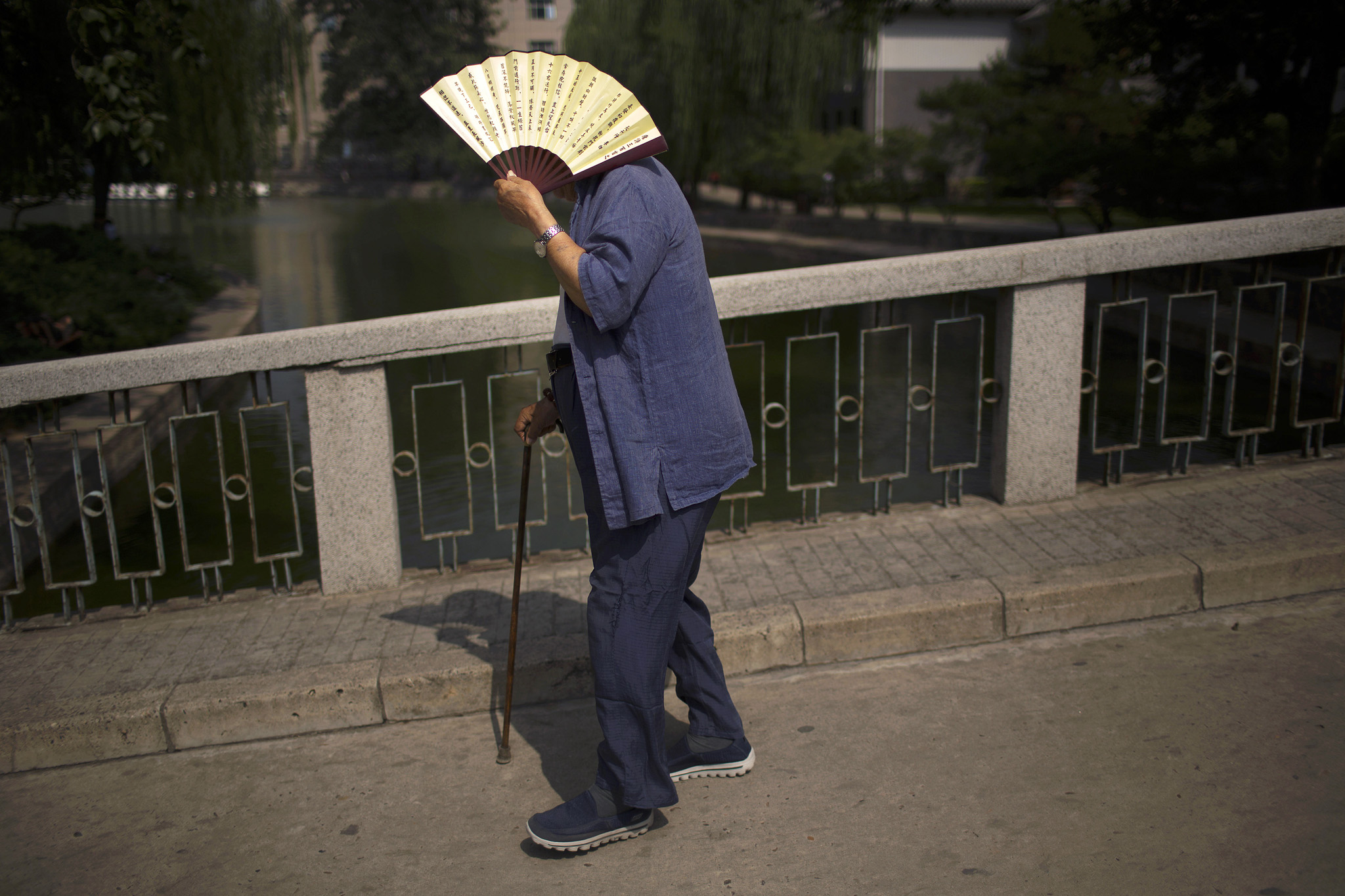



3 comments:
That's a brilliant piece of Williams, and brilliantly counterpoised to the rest of the post. (C. S. Lewis' chapter on Kind, Nature and Physis in Studies in Words was good too). I feel that we must now use "nature" as a complex and developing word; there's no retreat to simplicity. Even the idea of an essential essence is problematic. We can nevertheless use the word to say important things that no less complex word can say. That "nature" is sort of everything, including profit, greed, the death wish, and destruction of the Great Barrier Reef, --- well, that's one of the things we all have to make sense of in our own ways, certainly any modern art or poetry.
Williams is great here, and so finely counterpoised to the images. C.S. Lewis' earlier chapter in Studies in Words is good too. I don't believe we can simplify our use of "nature" now. It's in its complex form that it remains most useful for trying to articulate how e.g. nature comprises everything, including profit , greed, the Galilee Basin and the bleaching of the Great Barrier Reef.
Thanks very much Michael, you've beautifully encapsulated my motive with this post.
God knows what RW would have made of the world we have now. I've inkled a decline in interest in his work in the past decade or so, perhaps because the social analysis now makes so many people uncomfortable.
Which, to me, proves its enduring relevance.
Indeed "Nature" or "nature", as, seemingly, all of the words we use, can now be reshaped to incorporate or unincorporate or bleach or destroy just about anything, according to the wish and whim of whoever may be wishing to turn a quick tuppence.
Soon enough the Great Barrier Reef like the Great Pyramids will be no more than a blurry memory or an exhibit in a Chinese theme park, and then of course the memory will fade and the theme park will flourish in perpetuity as another popular monument in The New Dead Nature Spectacular.
Post a Comment